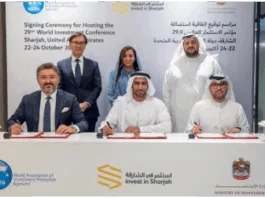UAE Tax Update: Understanding the Global Minimum Tax Implementation
In a significant move towards aligning with global tax standards, the United Arab Emirates (UAE) is preparing to implement a global minimum tax. This development is part of a broader international effort led by the Organisation for Economic Co-operation and Development (OECD) to address tax avoidance and ensure that multinational companies pay a fair share of taxes regardless of where they operate. Here’s an in-depth look at what the global minimum tax is, its implications for the UAE, and how businesses in the region can prepare for this change.
The global minimum tax is a pivotal part of the OECD’s two-pillar solution aimed at reforming international tax rules. Specifically, it falls under Pillar Two, which introduces a minimum effective tax rate of 15% on the profits of multinational enterprises (MNEs) with revenues above €750 million. This measure is designed to curb base erosion and profit shifting (BEPS) by ensuring that MNEs pay a minimum level of tax regardless of where they are headquartered or operate.
Key Objectives of the Global Minimum Tax
- Reduce Tax Avoidance: By establishing a minimum tax rate, the OECD aims to prevent MNEs from shifting profits to low-tax jurisdictions.
- Level the Playing Field: It ensures fair competition by mitigating the advantages that companies might gain from operating in countries with significantly lower tax rates.
- Increase Tax Revenues: It helps countries secure their tax base, leading to more stable and predictable tax revenues.
The UAE has historically been known for its favorable tax environment, including a corporate tax rate of 0% for most sectors and no personal income tax. This tax regime has been a significant factor in attracting foreign investment and making the UAE a hub for multinational companies.
In line with its commitment to international standards and to maintain its competitive edge, the UAE is set to implement the global minimum tax. This move aligns with its broader economic reforms and the UAE’s vision to enhance transparency and compliance within its tax framework.
The UAE government is currently in the process of drafting the necessary legislation to enforce the global minimum tax. It is anticipated that detailed regulations will be issued, outlining the specific rules and procedures for compliance. Businesses operating in the UAE should stay informed about these developments to ensure timely adaptation.
Multinational companies with significant operations in the UAE may face increased tax liabilities due to the 15% minimum tax rate. This change will particularly affect those that have previously benefited from the UAE’s low tax environment.
Businesses will need to enhance their tax compliance and reporting systems to align with the new regulations. This includes detailed reporting on global income, taxes paid, and effective tax rates across jurisdictions.
Companies may need to reassess their global tax strategies and structures. This could involve evaluating the tax implications of their operational locations, transfer pricing policies, and overall corporate structure to optimize tax efficiency under the new regime.
Companies should actively monitor updates from the UAE Ministry of Finance and the Federal Tax Authority regarding the implementation of the global minimum tax. Consulting with tax advisors and legal experts will be crucial to understand the full impact and ensure compliance.
Businesses should invest in upgrading their internal tax functions. This includes implementing robust tax compliance systems, training staff on new requirements, and possibly increasing the involvement of external tax consultants.
Reassessing and potentially restructuring business operations and entities may be necessary to adapt to the new tax environment. Companies should analyze the tax efficiency of their current structures and explore opportunities for optimization under the global minimum tax framework.
Engaging in detailed scenario planning and financial forecasting will help businesses anticipate the potential impacts on their financial statements. This proactive approach allows companies to develop strategies to mitigate adverse effects and capitalize on any opportunities arising from the new tax landscape.
While the implementation of a global minimum tax may initially seem like a challenge for the UAE’s business-friendly environment, it also signals a commitment to global standards, which can enhance the country’s reputation for transparency and reliability. This can attract high-quality investments from companies that prioritize compliance and stability.
Aligning with the OECD’s global minimum tax initiative helps strengthen the UAE’s international relations and partnerships. It positions the country as a cooperative and proactive member of the global economic community, fostering stronger ties with other nations and international organizations.
Implementing the global minimum tax aligns with the UAE’s broader strategy of economic diversification. By ensuring a fair and transparent tax system, the UAE can attract a diverse range of businesses and industries, reducing reliance on any single economic sector and promoting sustainable growth.
The UAE’s adoption of the global minimum tax marks a significant step in its ongoing economic evolution. While the new tax regime presents challenges for multinational companies operating in the region, it also offers opportunities for enhancing compliance, transparency, and strategic positioning. By staying informed, seeking expert guidance, and proactively adjusting their business strategies, companies can navigate this transition effectively and continue to thrive in the UAE’s dynamic and evolving business environment.
Stay Connected: ”Your Source for the Latest News Updates“



